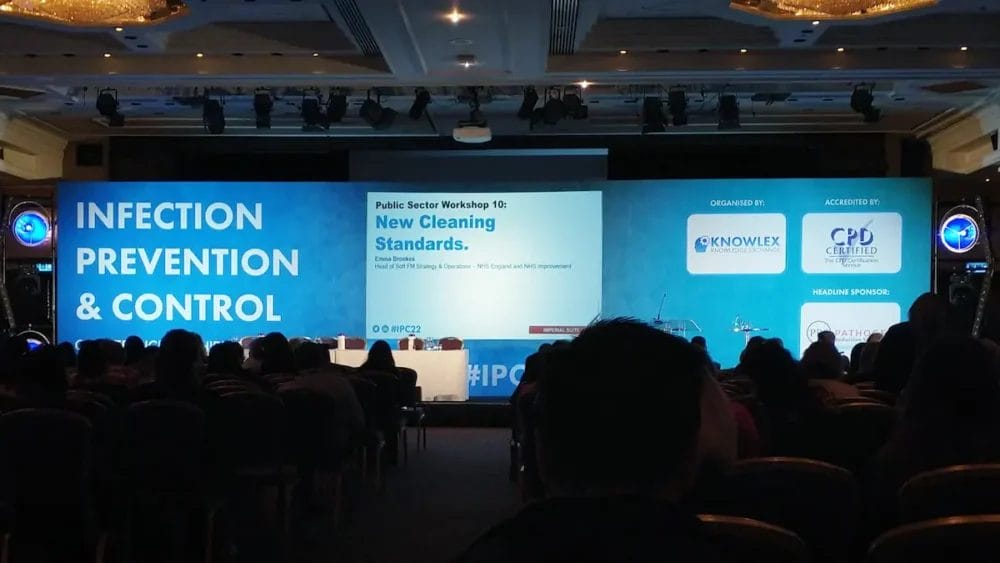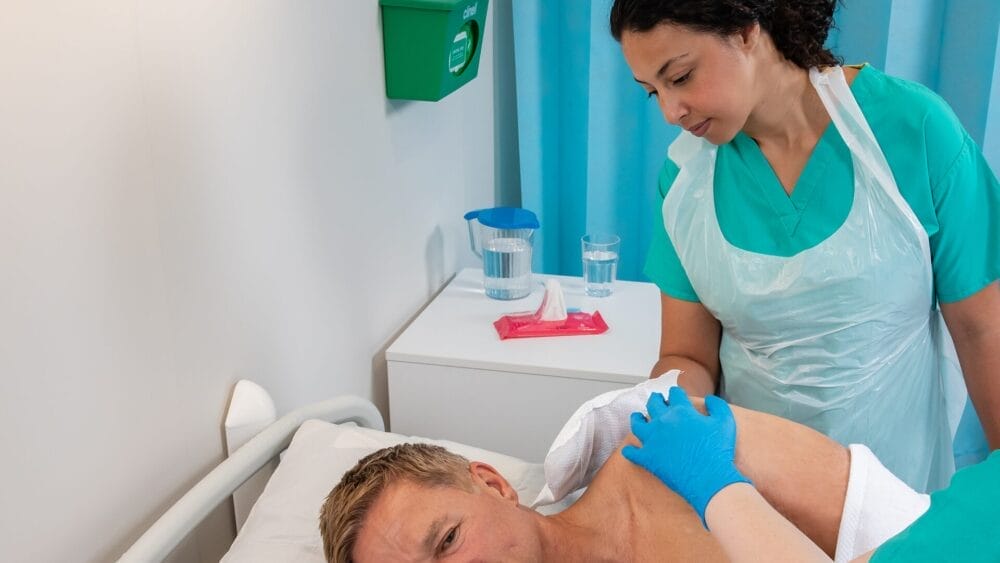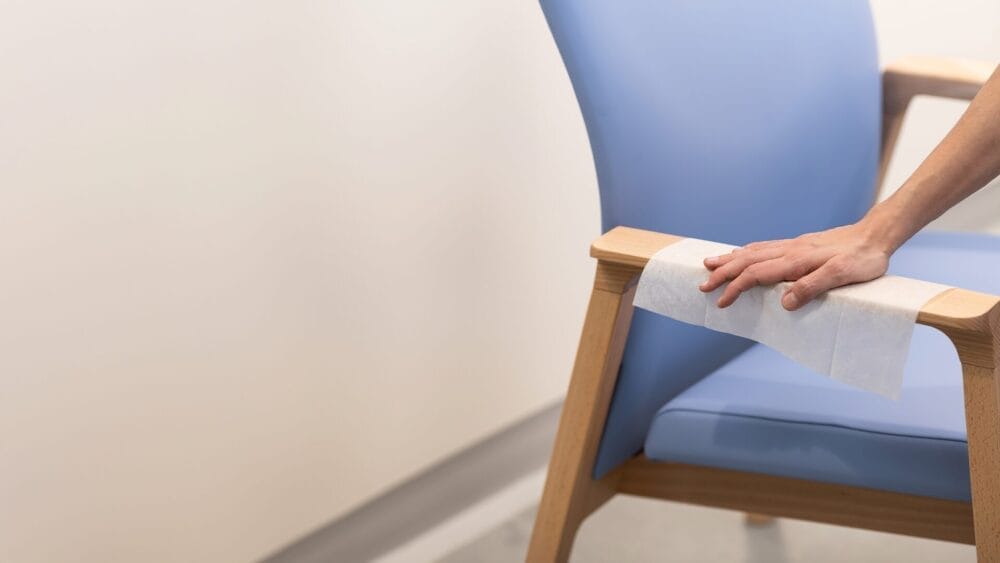Posted
20th May 2022
Events and Exhibitions
Our Clinical Specialist for Consumables, Michael Sanni, shares his highlights from the Knowlex Conference: Infection Prevention and Control 2022.
The Infection Prevention and Control (IPC) Knowlex Conference was held in the heart of the midlands, in Birmingham. Bringing together over 500 healthcare professionals across the UK, the event provided a knowledge exchange in bespoke topics in infection prevention and control. Knowlex showcased many updates to guidelines and policies which are important to the current practice of IPC within the UK public and private health sector. Across the two days, the conference consisted of, talks, Q&A sessions, posters, workshops, and an exhibition consisting of more than 80 companies and health organisations represented.
Focus on IPS/HIS guidelines
Jennie Wilson, the President of the Infection Prevention Society opened the event with a focus on the recent IPS/HIS guidelines and the patient’s perspective.
Improvements must be made in ventilation
Erika Bowker, a quality lead from Community NHS Surrey Heartlands Clinical Commissioning Group, spoke on the learning outcomes from COVID-19 in primary care. Discussing the pre-pandemic clinical environment, early pandemic learns, feedback from staff and how they are currently operationalising the feedback to improve service provision. Erika emphasises the lack of support staff observed from IPC nurses and the lack of basic knowledge in infection prevention and control among staff and their use of PPE. She indicates that as a measure of future proofing our indoor environments, improvements must be made in ventilation and that more guidance is needed in ventilation management within primary care.
RELATED CONTENT: Why ventilation is important & the role of air filtration units

Antimicrobial stewardship & IPC best practice
Stephen Hughes, an antimicrobial consultant pharmacist (from Chelsea and Westminster NHS Trust, UK) focused on antimicrobial research and covered many interesting topics including better stewardship of antibiotics to reduce the development of resistant strains of microorganisms. He also highlighted the microorganisms of interest such as E. coli, Klebsiella, Pseudomonas, helicobacter, A. baumannii. He suggested the need for a partnership between improving better guidance for prescription and antimicrobial stewardship, and an emphasis on preventative care and the necessity of everyday IPC best practice. He also highlighted the increased awareness of environmental cleaning and disinfection as a definitive aspect of clinical practice to prevent infection and therefore the subsequent misuse of antimicrobials.
RELATED CONTENT: Why antimicrobial resistance (AMR) poses a major threat to human health
Impact on mental health in NHS workforce
Dr Jon Otter (from Guy’s and St. Thomas’ NHS Foundation Trust and Imperial College London) gave an overview of the key learning points from the COVID-19 pandemic. Jon began by discussing the mental health toll that the pandemic has taken on the workforce – both within and outside of IPC and he asked everybody to reflect on their own experiences. Jon talked about a couple of areas of learning, including scientific discovery, epidemiology, vaccination, and regulatory aspects of IPC. It was amazing to hear how NHS hospitals have coped with the pace of change required by the pandemic, for example ICU surges and changes in regional and national expectations about reporting. Jon concluded by saying that we need to learn the lessons from this pandemic to prepare for the next.

NHS Every Action Counts Toolkit
Knowlex hosted several smaller workshops led by different organisations and companies which highlighted aspects of care, products for cleaning and decontamination, and discussed changes to policies and guidelines. Anne Nash (Nurse Consultant) and Julia Russel (Senior Clinical and Quality improvement Lead) both presented the adaptation of the NHS ‘Every Action Counts Toolkit’ for infection control within community care and hospices. They emphasised that hospices are often missed from the wider national network of infection prevention, and the need for better visibility and education for community health workers.
Conclusion
One thing is clear after the Knowlex Conference: the need for better education and a multimodal approach to infection control across all public and private health environments. GAMA has a plethora of compatible products which address different infection prevention and control needs, covering air purification, surface and environment decontamination and skin care products promoting personal hygiene.
If you’d like to find out more about the recent events the GAMA Healthcare team has attended, visit our Events and Exhibitions section on our blog. Help spread the word about the importance of infection prevention by sharing this article on social media.
SHARE THIS ARTICLE
Tags
Latest News
Embracing sustainability and cost savings: The journey of Clinell Indicator Notes to paper-based solutions
At GAMA Healthcare, we’ve always prided ourselves on being at…
Introducing HEXI HUB: A seamless transition in our product line
We’re pleased to announce an update to our product offering…
Innovative solutions for tackling Carbapenemase-producing Enterobacteriaceae (CPE) at King’s College Hospitals
King’s College Hospital NHS Foundation Trust, one of London’s largest…
Gloves Off: reducing unnecessary plastic waste during environmental cleaning and disinfection
In this blog, Dr Phil Norville discusses the momentum-gaining ‘Gloves…





